The Troubled History of Weird Tales Magazine
/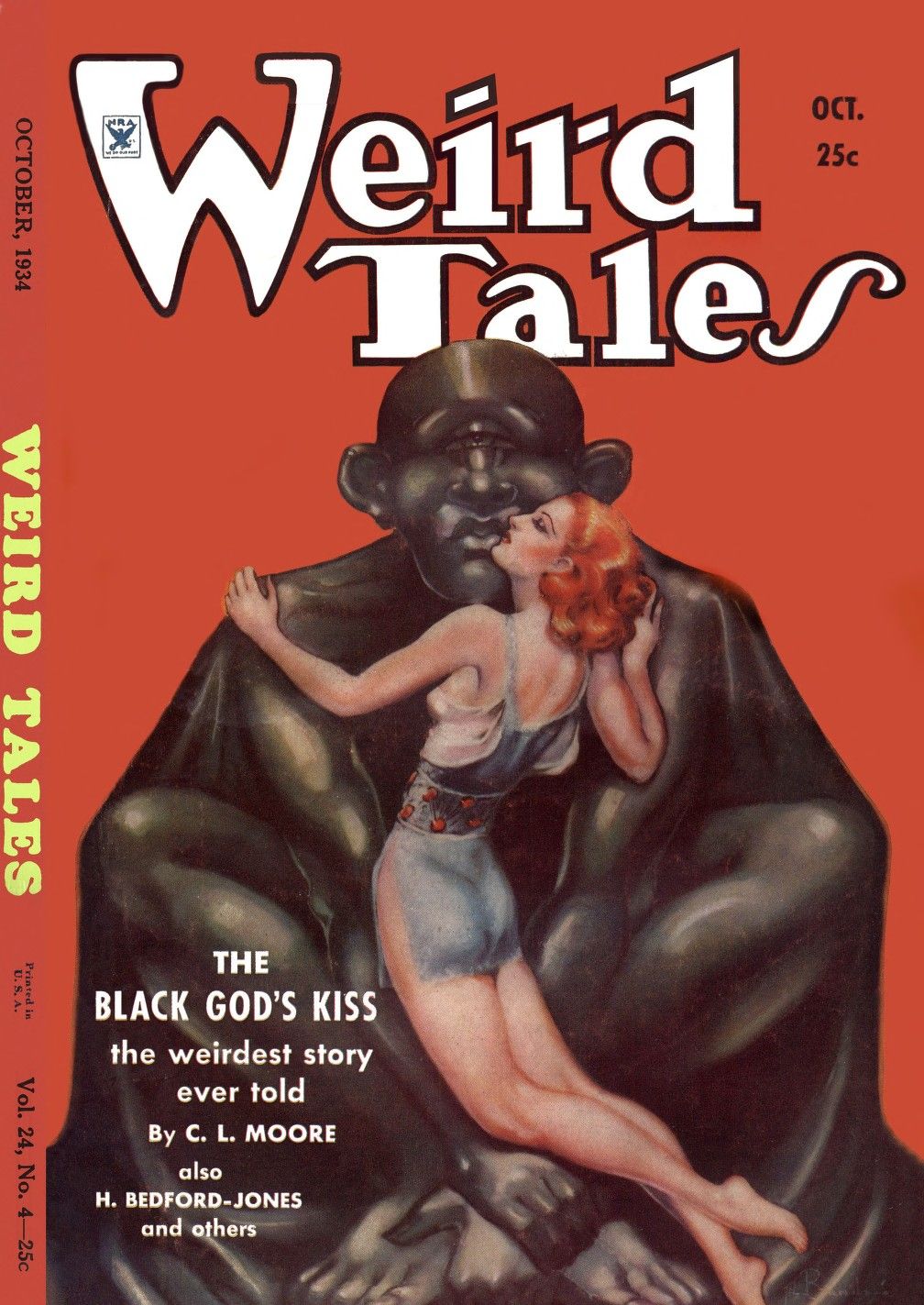 When the fall arrives, I get into the mood for darker fiction, particularly H.P. Lovecraft. I've written about Lovecraft before, but I didn't quite realize how important the magazine was, despite its general flaws in quality, to the genre. Authors such as C.L. Moore, and quite a few others passed through its pages, and it's clear that it's a publication that's just as important as Astounding or Amazing Stories.
When the fall arrives, I get into the mood for darker fiction, particularly H.P. Lovecraft. I've written about Lovecraft before, but I didn't quite realize how important the magazine was, despite its general flaws in quality, to the genre. Authors such as C.L. Moore, and quite a few others passed through its pages, and it's clear that it's a publication that's just as important as Astounding or Amazing Stories.
Go read The Troubled History of Weird Tales Magazine over on Kirkus Reviews. Sources Used:
The Time Machines: The Story of science-fiction pulp magazines from the beginning to 1950, Mike Ashley: Ashley's fairly comprehensive history touches on Weird Tales, and provided some excellent details on the operations of the magazine, in context with the rest of the pulp magazine market. Lovecraft: A Look Behind the 'Cthulhu Mythos', Lin Carter: Carter's book talks about Lovecraft's interactions with the magazine, which provided some crucial details. The Creation of Tomorrow: Fifty Years of Magazine Science Fiction, Paul A. Carter: This book is another history of speculative fiction magazines, and it provided some good details and context on Weird Tales' place in the market. The Pulps, edited by Tony Goodstone: This is actually a neat anthology of stories from the pulp era, prefaced with a blurb about the magazines. Weird Tales has a whole section, along with stories from Tennessee Williams, Page Cooper, Frank Belknap Long Jr., Mary Elizabeth Counselman, Malcom Jameson, Virgil Finley, Clark Ashton Smith and H.P. Lovecraft. A Dreamer and a Visionary: H.P. Lovecraft in His Time, S. T. Josti: Another book on Lovecraft that shed some interesting details on Lovecraft's interactions with the magazine. The Man from Mars: Ray Palmer's Amazing Pulp Journey, Fred Nadis: This is a recent biography that talked a bit about Fransworth Wright, one of the major editors at the magazine. Conversations with the Weird Tales Circle, John Pelan: This astonishing book is a tome, with an impressive, excited survey of Weird Tales authors and editors (although interestingly, Dorothy McIlwraith is missing.) with a lot of primary source information. This was particularly helpful with Wright, but also with primary source impressions from the authors who wrote for the magazine. The Weird Tales Story, Robert E. Weinberg: This book is an exhuberant, editorialized history of the magazine, which helped put some of the major events into place.

 The
The  It's fall, and I've been once again shifting from the usual topic of science fiction to horror and fantasy. Last year, I wrote about H.P. Lovecraft, and in my last column, I wrote about Robert E. Howard. As I've researched these guys, I continually came up with a common name: Lord Dunsany, and I've been looking to write about him and his works.
It's fall, and I've been once again shifting from the usual topic of science fiction to horror and fantasy. Last year, I wrote about H.P. Lovecraft, and in my last column, I wrote about Robert E. Howard. As I've researched these guys, I continually came up with a common name: Lord Dunsany, and I've been looking to write about him and his works. I'm pleased to say that I've just made my first pro fiction sale! My story 'Fragmented' will appear in the new magazine
I'm pleased to say that I've just made my first pro fiction sale! My story 'Fragmented' will appear in the new magazine  Back in April, I had been doing some reading on the Lovecraft Circle, and came across an interesting fact about one of the authors, Robert Howard. At the age of 30, he killed himself upon learning that his mother was in a coma and would never wake up again. It was interesting, because before that time, he had created a couple of well known characters, namely, Conan the Conqueror one of the pulp era's defining heroes. A couple of weeks ago, I came across one of his more Lovecraftian stories, The Black Stone, and was reminded of his short life and influence. Beyond just Conan, he helped to influence an entire subgenre of fantasy, Sword and Sorcery.
Back in April, I had been doing some reading on the Lovecraft Circle, and came across an interesting fact about one of the authors, Robert Howard. At the age of 30, he killed himself upon learning that his mother was in a coma and would never wake up again. It was interesting, because before that time, he had created a couple of well known characters, namely, Conan the Conqueror one of the pulp era's defining heroes. A couple of weeks ago, I came across one of his more Lovecraftian stories, The Black Stone, and was reminded of his short life and influence. Beyond just Conan, he helped to influence an entire subgenre of fantasy, Sword and Sorcery.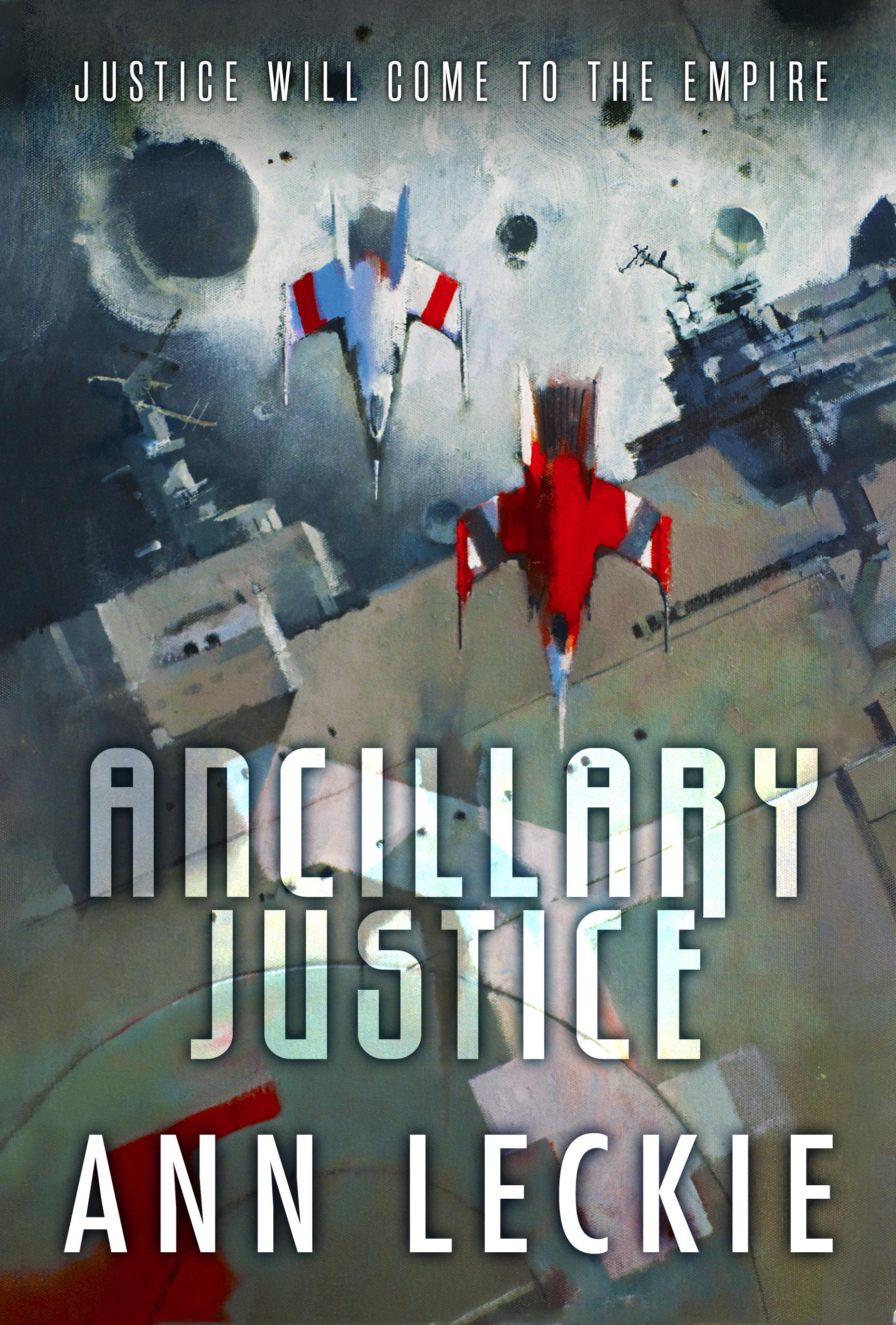 The Justice of Toren faithfully served the Radch, a galaxy-spanning empire overseen by Anaander Mianaai, the multibodied, immortal The Lord of the Radch. The empire has stood for millennia, maintained by a militaristic system of ships, human soldiers and undead ancillary soldiers under the control of their ship. The ships, such as the Justice of Toren, are run by advanced AI systems who oversee all parts of their command and mission. With the opening of Ann Leckie's debut novel Ancillary Justice, we're introduced to Breq, the last individual of the Justice of Toren, whose twenty year mission is almost at an end.
The Justice of Toren faithfully served the Radch, a galaxy-spanning empire overseen by Anaander Mianaai, the multibodied, immortal The Lord of the Radch. The empire has stood for millennia, maintained by a militaristic system of ships, human soldiers and undead ancillary soldiers under the control of their ship. The ships, such as the Justice of Toren, are run by advanced AI systems who oversee all parts of their command and mission. With the opening of Ann Leckie's debut novel Ancillary Justice, we're introduced to Breq, the last individual of the Justice of Toren, whose twenty year mission is almost at an end. I make it no secret that I really enjoy Military Science Fiction. It's been on my mind lately, as I'm in the middle of preparing an anthology of Military SF stories for launch. When I was in college, I studied History and eventually earned my master's in Military History, and I've found that the sub genre has been an interesting place to read and rant about.
I make it no secret that I really enjoy Military Science Fiction. It's been on my mind lately, as I'm in the middle of preparing an anthology of Military SF stories for launch. When I was in college, I studied History and eventually earned my master's in Military History, and I've found that the sub genre has been an interesting place to read and rant about. Earlier this week, Grandmaster Frederik Pohl passed away at the age of 93. He's the last of a major generation in the genre, and was a legendary contributor to science fiction from every possible direction. It's a great loss for Science Fiction.
Earlier this week, Grandmaster Frederik Pohl passed away at the age of 93. He's the last of a major generation in the genre, and was a legendary contributor to science fiction from every possible direction. It's a great loss for Science Fiction.

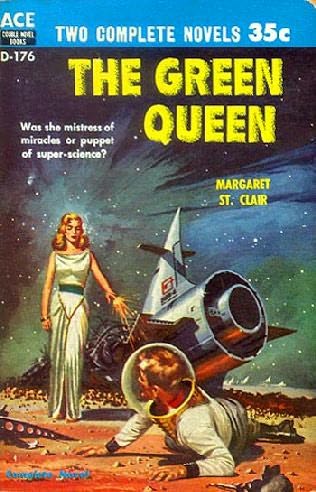 Science Fiction has a reputation as being the boy's club, where all the major names, such as Asimov, Heinlein and Clarke get a majority of the credit for the development and direction of the genre as a literary movement. It's unfortunate, because that's not the full story, and it means that there's a lot of other authors out there that really don't get the credit that they deserve.
Science Fiction has a reputation as being the boy's club, where all the major names, such as Asimov, Heinlein and Clarke get a majority of the credit for the development and direction of the genre as a literary movement. It's unfortunate, because that's not the full story, and it means that there's a lot of other authors out there that really don't get the credit that they deserve.
 Lists are hard to do well. There's always too many entries, too much to say, and too short a space. For a while now, I've been wanting to do a survey of some of the notable dystopian stories, and following the news of Edward Snowden's leak of classified NSA program information, it seems like a good time to take a look at some of the notable works where government overreaches. It's fitting, as 1984 has enjoyed considerable success in the last couple of weeks.
Lists are hard to do well. There's always too many entries, too much to say, and too short a space. For a while now, I've been wanting to do a survey of some of the notable dystopian stories, and following the news of Edward Snowden's leak of classified NSA program information, it seems like a good time to take a look at some of the notable works where government overreaches. It's fitting, as 1984 has enjoyed considerable success in the last couple of weeks.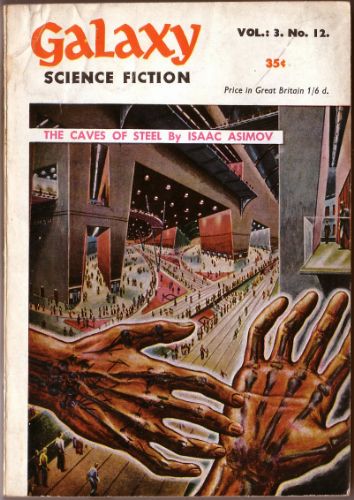 One of the things that I've really loved about this column is getting a sense of how connected everyone was. Truly, everyone seemed to know one another, even as small groups formed around certain editors. A case in point, over the last couple of columns, I've been looking at the Golden Age of SF, which is generally regarded as beginning with John W. Campbell Jr.'s rein at Astounding. Campbell's star was bright and enduring, but it lost its innovative edge. H.L. Gold, I think, deserves more attention for his role during the Golden Age, as his magazine Galaxy Science Fiction provided some of the genre's most enduring classics.
One of the things that I've really loved about this column is getting a sense of how connected everyone was. Truly, everyone seemed to know one another, even as small groups formed around certain editors. A case in point, over the last couple of columns, I've been looking at the Golden Age of SF, which is generally regarded as beginning with John W. Campbell Jr.'s rein at Astounding. Campbell's star was bright and enduring, but it lost its innovative edge. H.L. Gold, I think, deserves more attention for his role during the Golden Age, as his magazine Galaxy Science Fiction provided some of the genre's most enduring classics. Earlier this week, SF Grandmaster Jack Vance passed away at the age of 96. His writing career lasted over six decades, and he's known for his fantastic worldbuilding in addition to his enormous volume of works.
Earlier this week, SF Grandmaster Jack Vance passed away at the age of 96. His writing career lasted over six decades, and he's known for his fantastic worldbuilding in addition to his enormous volume of works.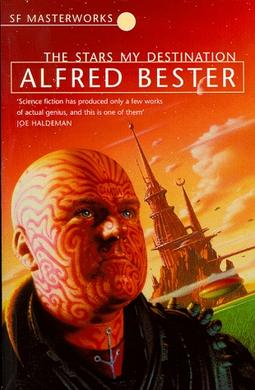 Last year, I picked up and read The Stars My Destination for the first time. It's an astonishing book, one that I alternatively wish that I'd read it earlier, and that I'm glad that I read it now, with the capabilities to really get how important of a book it is. The book was used in a science fiction class that I sat in on this past semester here at Norwich, and it was interesting to see the student's reactions to it.
Last year, I picked up and read The Stars My Destination for the first time. It's an astonishing book, one that I alternatively wish that I'd read it earlier, and that I'm glad that I read it now, with the capabilities to really get how important of a book it is. The book was used in a science fiction class that I sat in on this past semester here at Norwich, and it was interesting to see the student's reactions to it. Little Bram was born this morning at 10:18am, and I'm now a father. Achievement unlocked, I guess. Abraham Charles Liptak is 7 lbs, 3 oz, 20 inches long and 100 % cute. He has features from Megan and myself, and so far, he's been fairly quiet: some fussing, a little crying, but mostly, sleeping and holding onto my fingers. He's one of the newest members of the human race, along with three others born last night and this morning here.
Little Bram was born this morning at 10:18am, and I'm now a father. Achievement unlocked, I guess. Abraham Charles Liptak is 7 lbs, 3 oz, 20 inches long and 100 % cute. He has features from Megan and myself, and so far, he's been fairly quiet: some fussing, a little crying, but mostly, sleeping and holding onto my fingers. He's one of the newest members of the human race, along with three others born last night and this morning here.